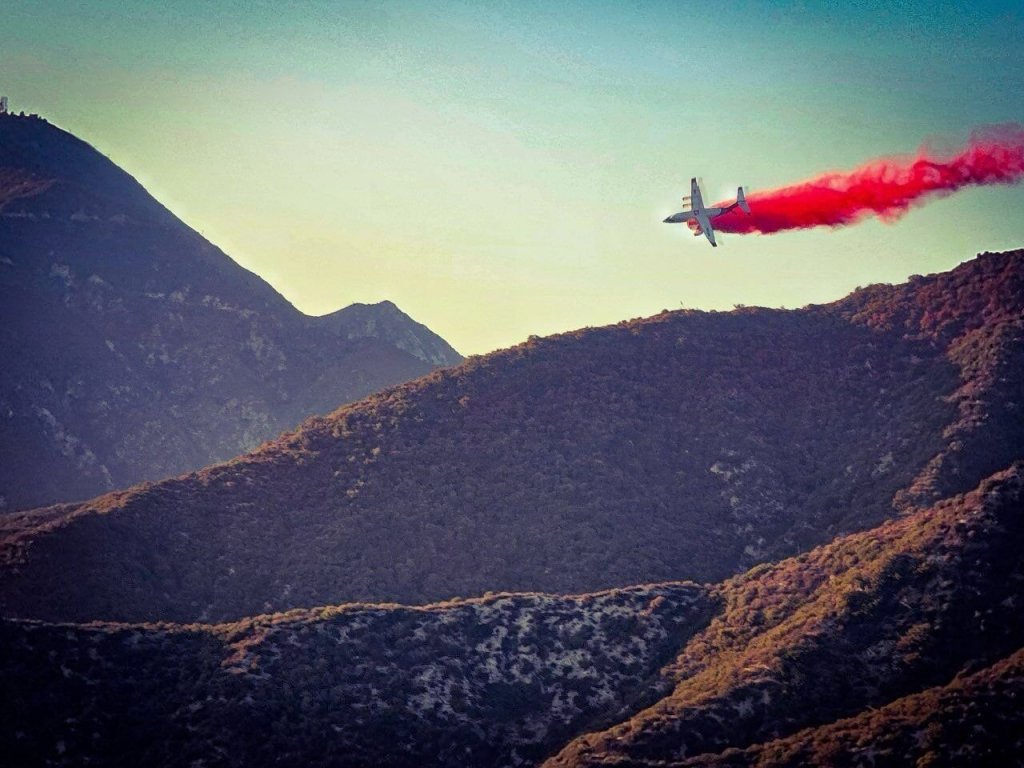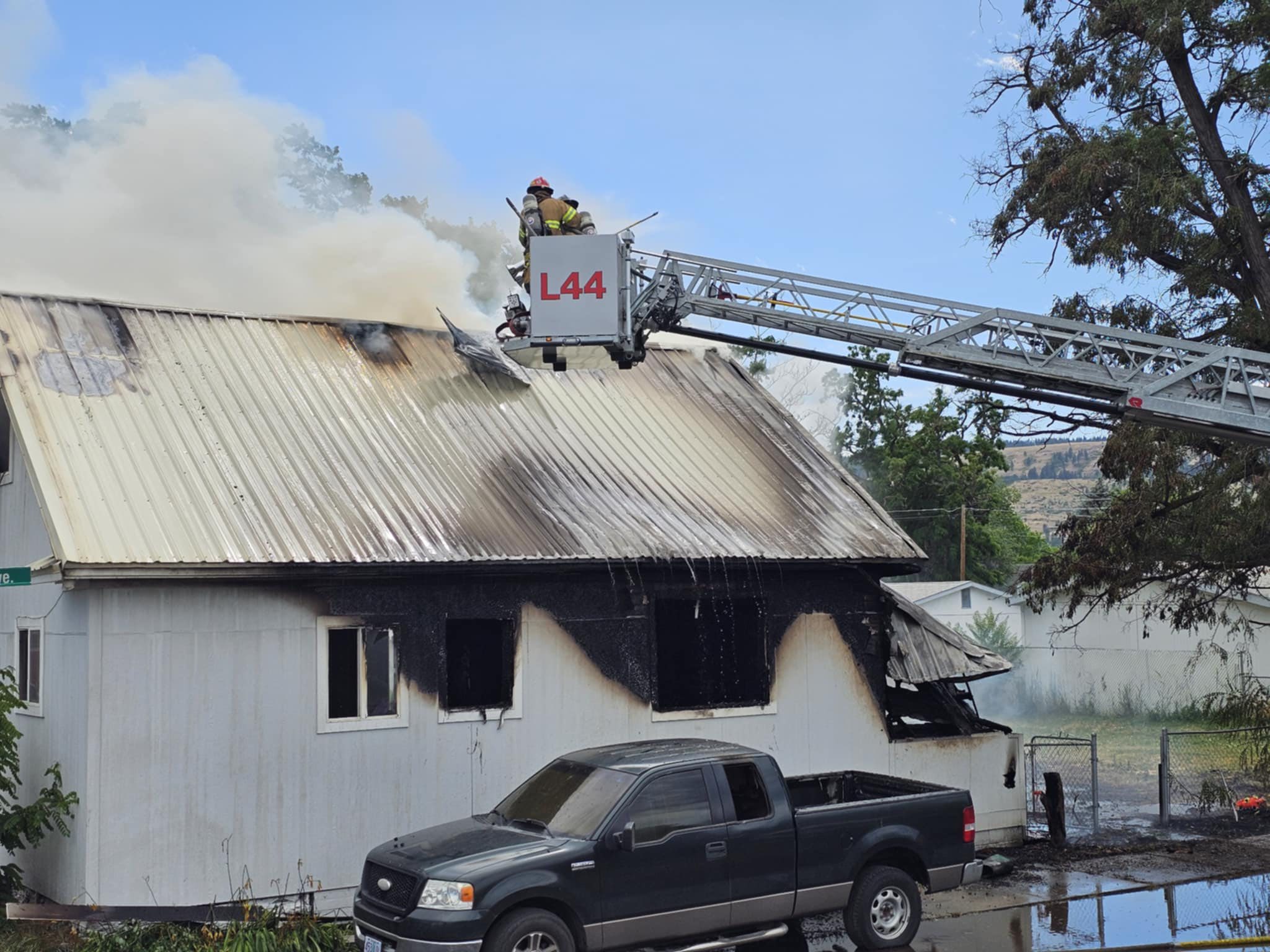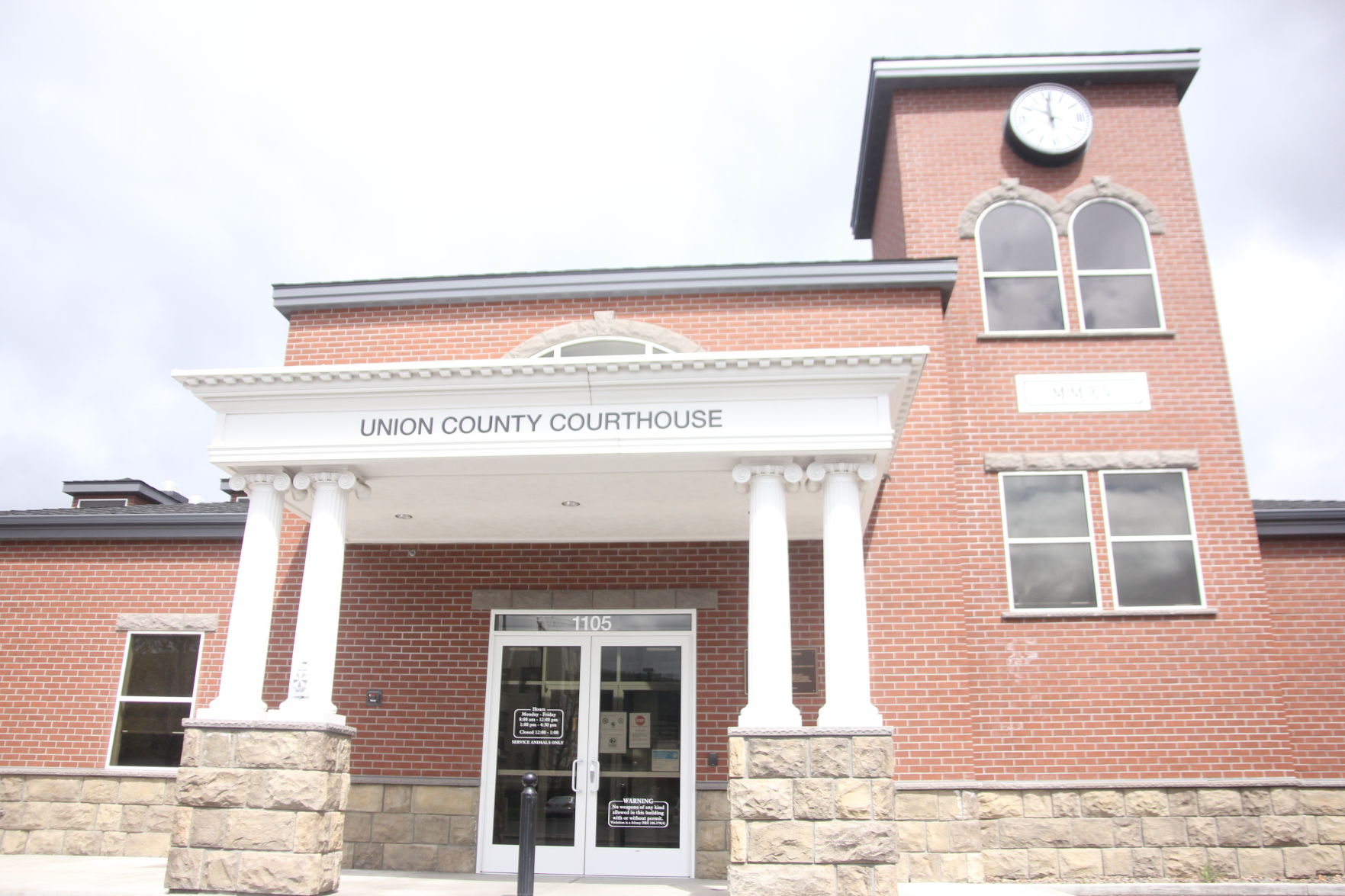Firefighters from NE Oregon helping with devastating LA blazes
Published 5:00 am Thursday, January 16, 2025

- An air tanker drops retardant ahead of the Eaton Fire near Pasadena, California.
Danielle Weaver figured she’d be shoveling snow in the middle of January rather than spraying water on a wildfire that has killed 17 people and destroyed several thousand homes near Pasadena, California.
But then came the Jan. 8 phone call.
Weaver, who lives in Baker City and works for the Oregon Department of Forestry as a firefighter and forester, took the call around 10 a.m.
Within two hours or so, two other ODF fire engine captains from La Grande, Cody Rickert and Anthony Goodwater, were picking up Weaver in Baker City.
Santa Ana winds were propelling two deadly wildfires through areas northeast and northwest of Los Angeles, and the trio was on the way to aid in the fight against the blazes.
The largest by far — the Palisades and Eaton wildfires — continue to burn, according to news reports. CAL FIRE — the California Department of Forestry and Fire Protection — reported as of Wednesday, Jan. 15, a total of 153 wildfires burned more than 40,600 acres, destroyed more than 12,300 structures and led to 24 deaths.
Weaver, Rickert and Goodwater drove south in an engine that has a 400-gallon water tank. They stayed that night in Reno, Nevada, then continued the drive to Southern California. They arrived at the Rose Bowl, the famous football stadium in Pasadena, around 3 p.m. Jan. 9. They were part of the contingent of Northeastern Oregon firefighters lending their help in Southern California.
The Oregon Department of Forestry has sent six strike teams to California to assist in battling the blazes. The two teams are split between the Palisades and Eaton fires, with three teams working each fire.
Six people from John Day — Tyler Moodenbaugh, Hannah Deming, Ely Carniglia, Robby Bullock, Marnie Woodbury and Matthew Brown — are part of the six ODF crews in Los Angeles.
Tracy Brostrom, the unit forester for the Oregon Department of Forestry at Wallowa, said Wallowa has sent one engine and one firefighter and has taken two firefighters from Pendleton and Baker City. He said Monday, Jan. 13, that La Grande sent one engine and three firefighters as well.
Jeff Bohnsack, U.S. Forest Service fire management officer for the Wallowa Mountains Office in Joseph, said the Wallowa-Whitman National Forest has sent one Type 6 engine and four firefighters to Beaumont, which is just east of Los Angeles. He said they arrived Jan. 12.
The ODF firefighters are on two week assignments. That could be extended to 21 days. Brostrom and Bohnsack said if the firefighters are needed beyond the two weeks they’re scheduled to stay, replacements can be sent.
“They’ll put in their full 14 days,” Brostrom said. ”It just depends on what the fire’s doing.”
“If additional resources are needed, we’d fly them down,” Bohnsack said. “They’re down there to help provide relief.”
Local fire departments join effort
The Boardman Fire Rescue District and Heppner Fire Department sent crews. The two teams met Jan. 11 in Boardman and traveled together to Southern California.
“That’s what we do,” said Marty Broadbent, fire marshall of the Boardman Fire Rescue District. “That’s what we sign up for, helping one another, helping our communities.”
The Boardman fire district sent Battalion Chief Sam Iron, firefighter Ben Netter and a fire engine. The Heppner Fire Department, made up of volunteer firefighters, sent Lt. Stacy Lauristen and Lt. Katilyn Zinter.
“They recognize the need for assistance, and we receive assistance, whether it’s locally or from different agencies that came to Eastern Oregon with all of our fires this summer,” Heppner City Manager John Doherty said. “In return, we lend assistance in kind.”
Doherty said the firefighters went to Salem for orientation and equipment check before heading down to California for two weeks.
Umatilla County Fire District No. 1 sent a lieutenant and a firefighter with a water tender. District Chief Scott Stanton said the team left on the weekend and joined other strike teams from Oregon. He said fire departments evaluate the feasibility of sending personnel and equipment when these requests come in.
He explained the local department fronts the cost of fulfilling this kind of request for help, and it can be a while before the reimbursement comes. He said the average wait time stands at nine months.
“We’ve voiced that concern at the state fire marshal level,” Stanton said, and hoped there is a way to speed up that reimbursement.
Different firefighting environment
Soon after Weaver, Rickert and Goodwater arrived, they were patrolling fire lines and trying to prevent the Eaton Fire from ravaging more residential neighborhoods.
In a Jan. 14 phone interview from Pasadena, Weaver said the experience in some ways has been quite different from what she’s used to in fighting wildfires in Northeastern Oregon.
Population is the biggest discrepancy.
Weaver, who has lived in Baker City for several years, said blazes in Northeastern Oregon that burn in the “wildland urban interface” — where forests or rangelands mix with residential areas — typically threaten just a handful of homes at most.
The Eaton Fire, by contrast, which had burned 14,117 acres as of Jan. 14, has devastated, and continues to threaten, neighborhoods where “it’s just houses next to each other for block after block,” Weaver said.
“It’s very different from what I’m used to,” she said.
So is the weather.
Although temperatures in the 60s are balmy compared with the 20s and 30s prevailing this week in Baker City, Weaver said nights in Pasadena have been chilly. And the winds at higher elevations have been cold.
“It’s weird to wear down coats in the morning while working on a fire,” Weaver said.
During fire season in Northeastern Oregon, which typically runs from around July 1 through September, daytime temperatures are typically in the 80s or above.
Early start
Although Oregon firefighters sometimes travel to the Southwest to fight fires in late winter or early spring, when the fire danger is all but nonexistent here, Weaver said she had to scramble to pack her gear after taking the call Jan. 8.
“This is the earliest (in the year) I believe a lot of us have ever been called out,” she said. “Sort of a surprise, trying to get back into fire mode.”
Weaver said she, Rickert and Goodwater are staying in a motel near Pasadena.
During their shifts they have worked both in populated areas and in the steep — in places nearly vertical, she said — terrain north of Pasadena.
Weaver said chaparral — types of brush with oily leaves that easily carry fire — poses a major challenge to firefighters.
“I think that’s what makes firefighting so tough down here,” she said.
Wind makes the situation even more volatile. With the combustible conditions, Weaver said firefighters are focusing on mopping up residual pockets of heat.
“If you miss even one small spark or ember it’s going to be another start once that wind kicks up,” she said.
Help from the community
Co-owner Jack Rowe and his husband, Will Rowe, of the Pendleton House Historic Inn are raising donations for the American Red Cross to help Southern California wildfire victims.
“ We have friends that are in the Los Angeles area and they know so many that are suffering,” Jack said. “So we thought, what can we do? And we’re so far away, we really can’t house people. So I thought we’d just do a little online fundraiser.”
The owners are raising funds through the bed and breakfast’s Facebook page, offering an opportunity to bid on a two-night stay at the Pendleton House Historic Inn, along with a bottle of wine.
Jack said they have raised $400 so far and that donations will be accepted until Friday, Jan. 17.









